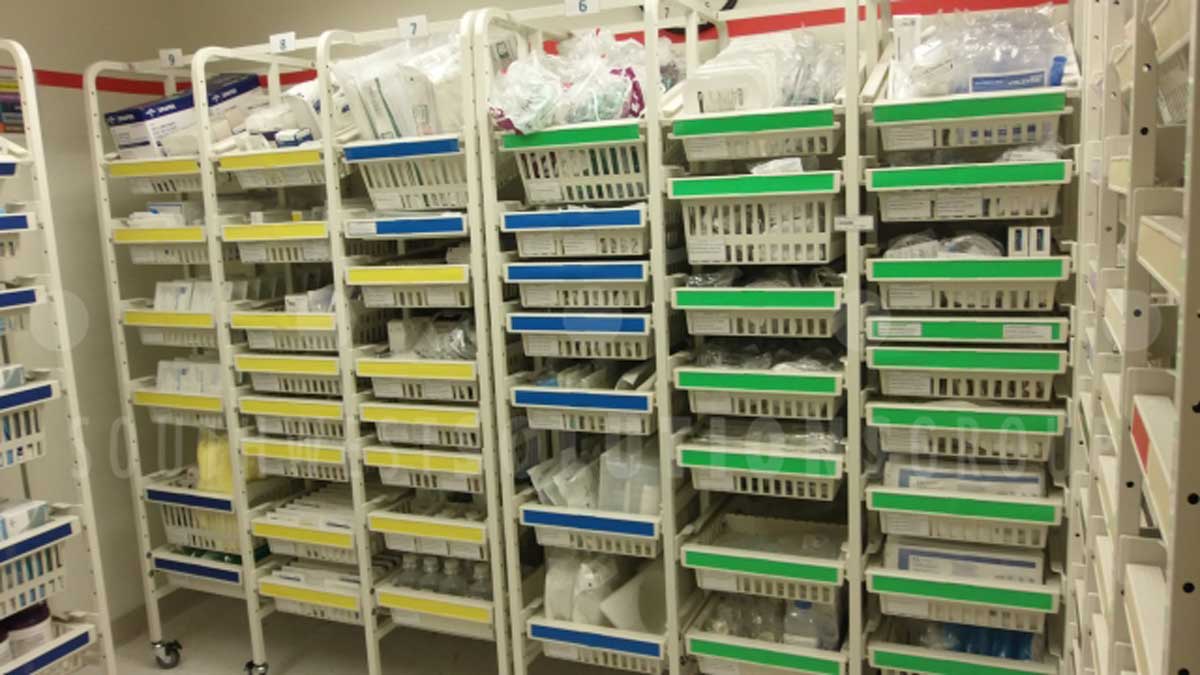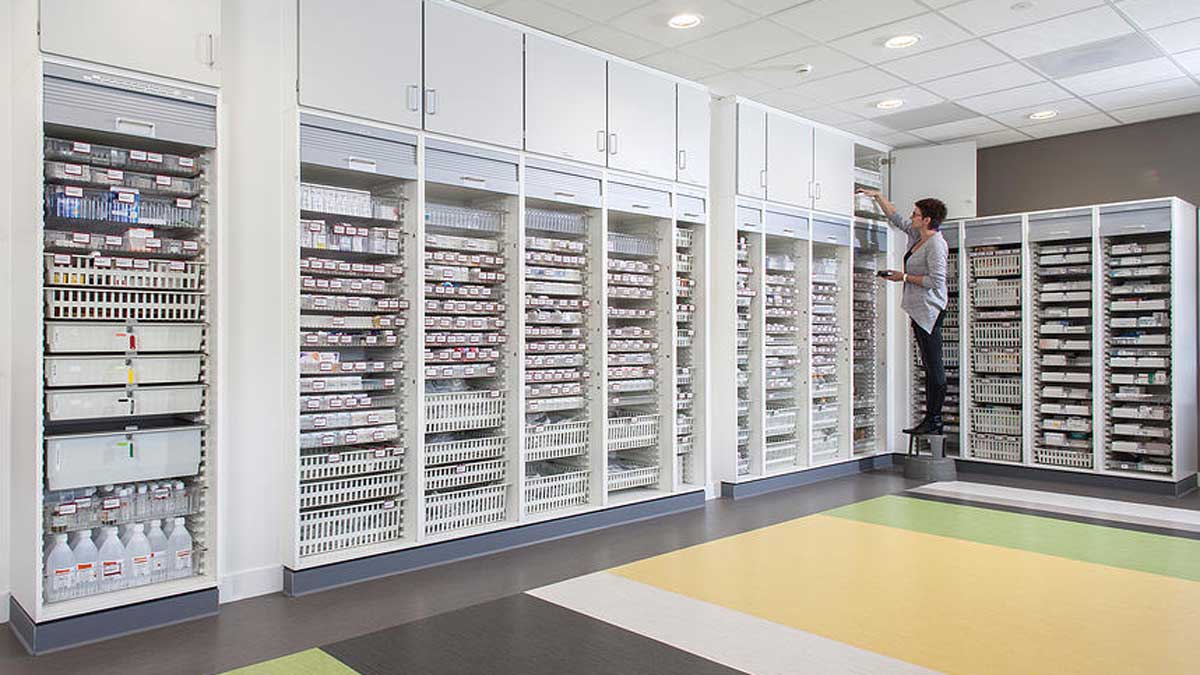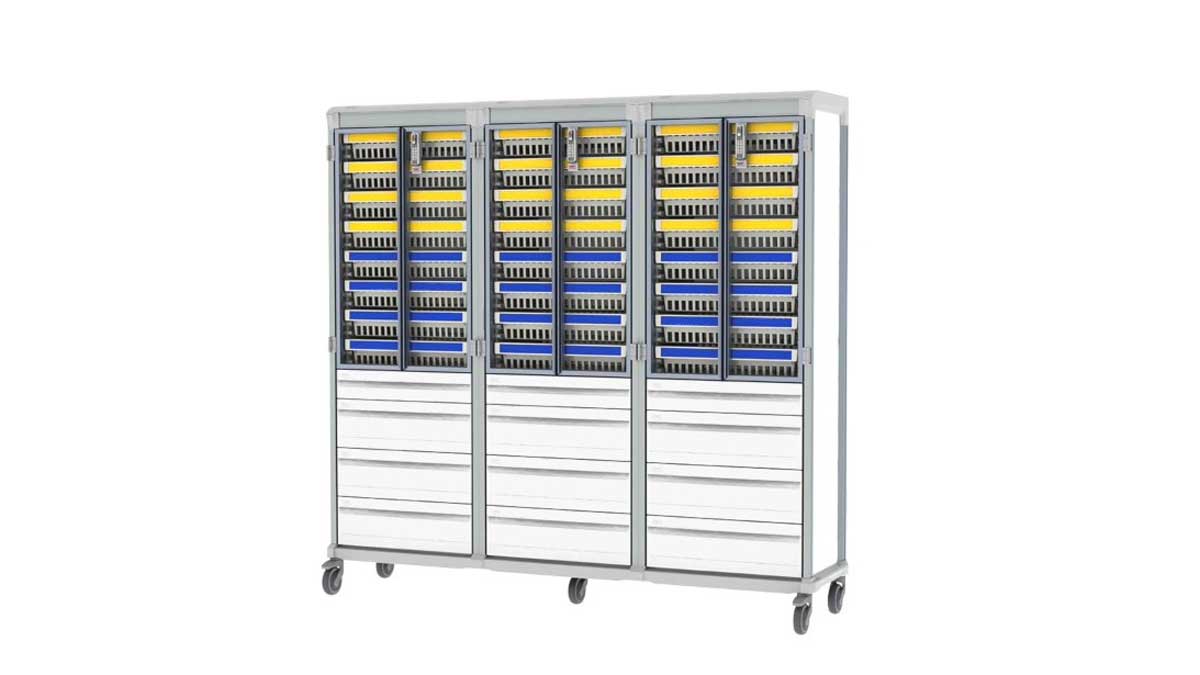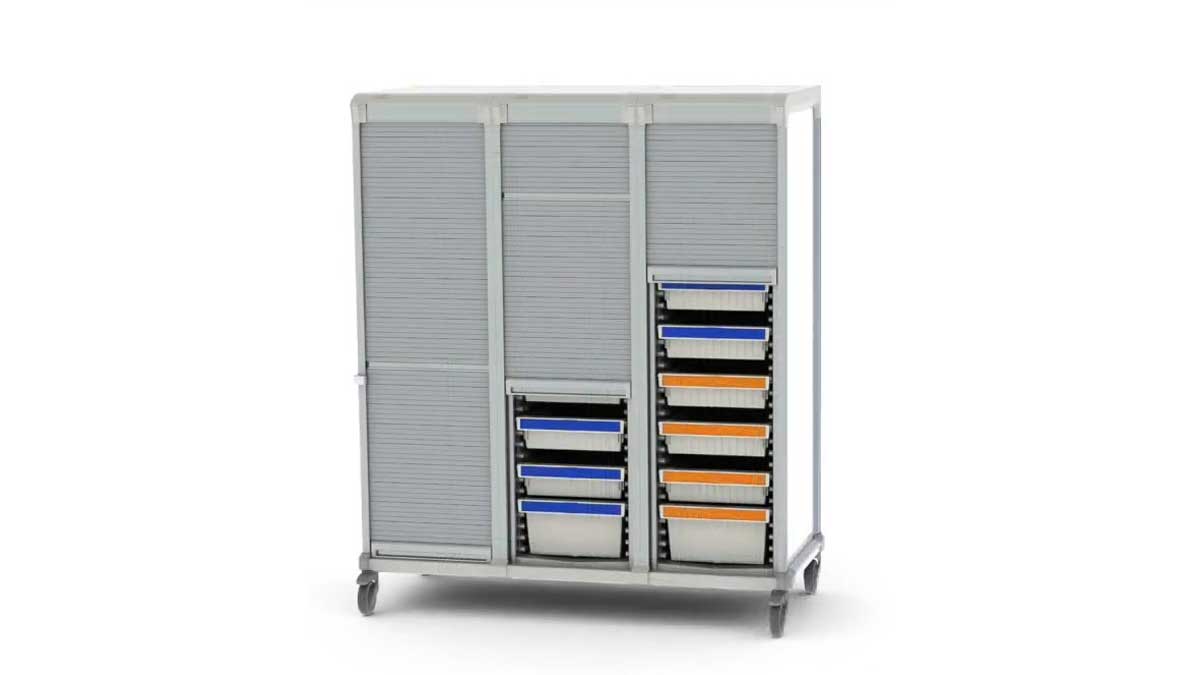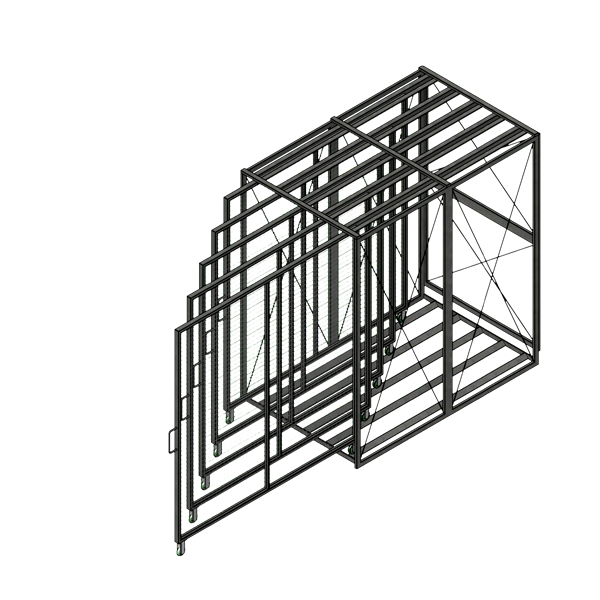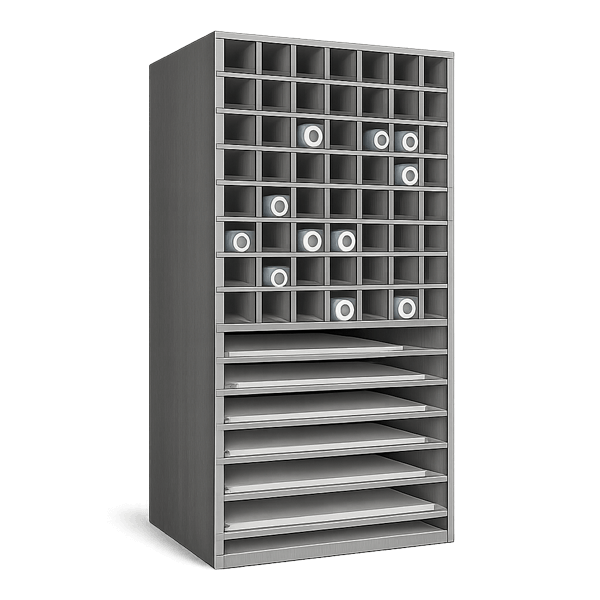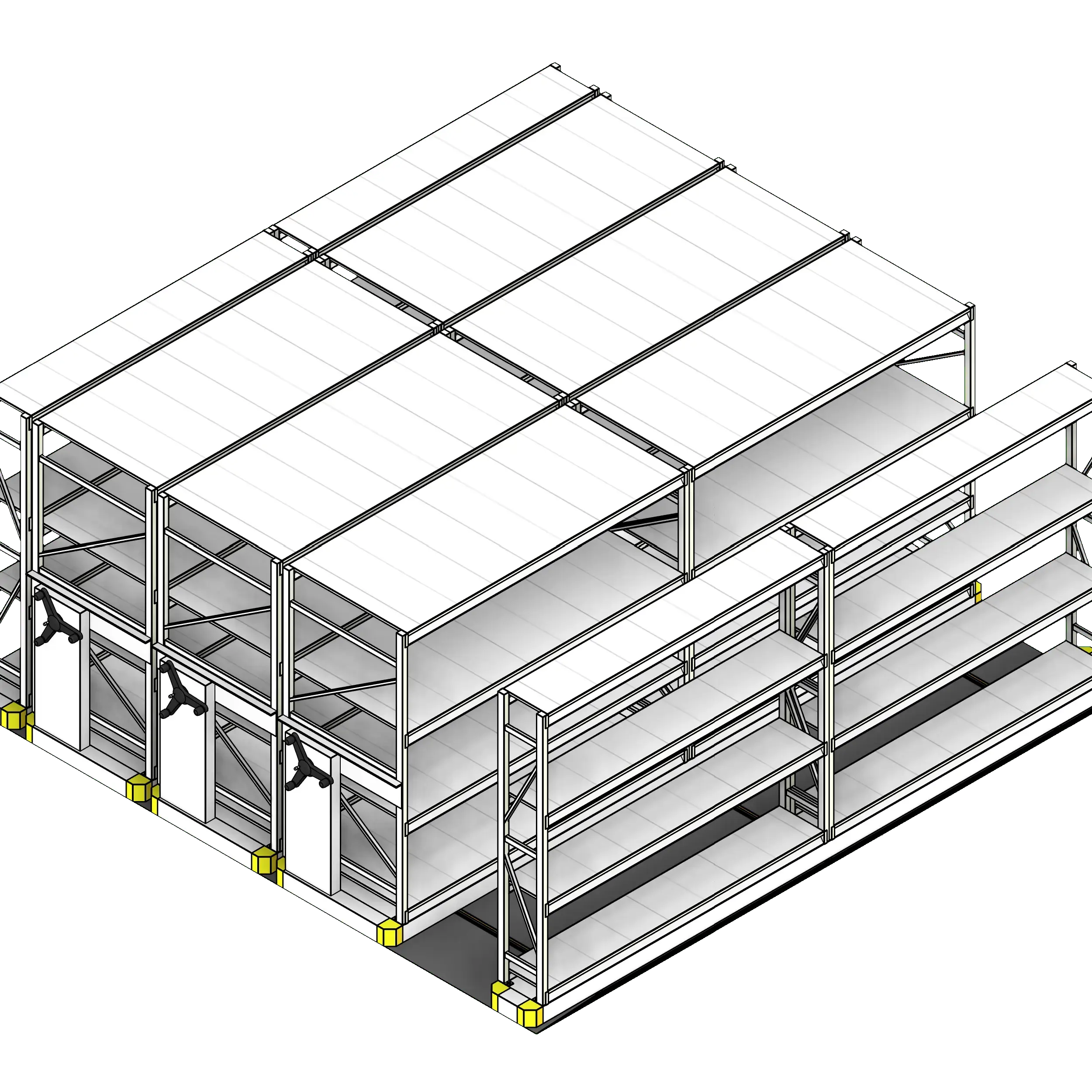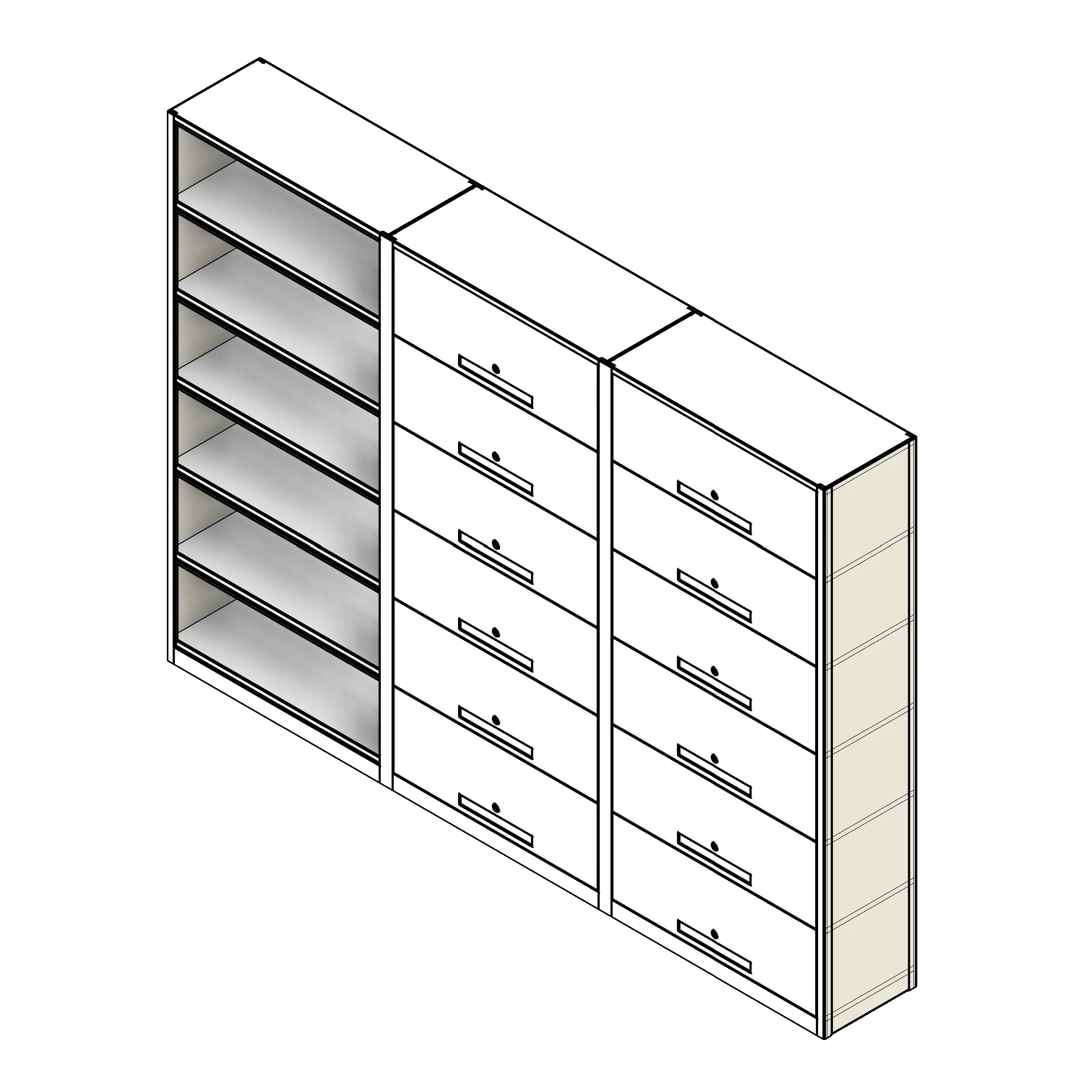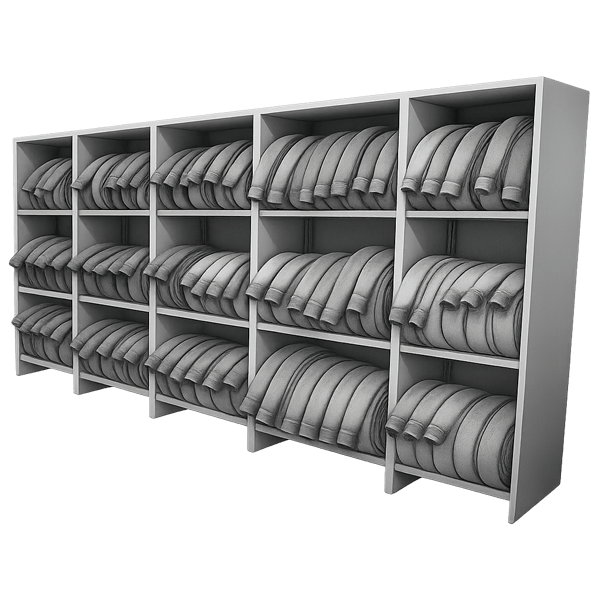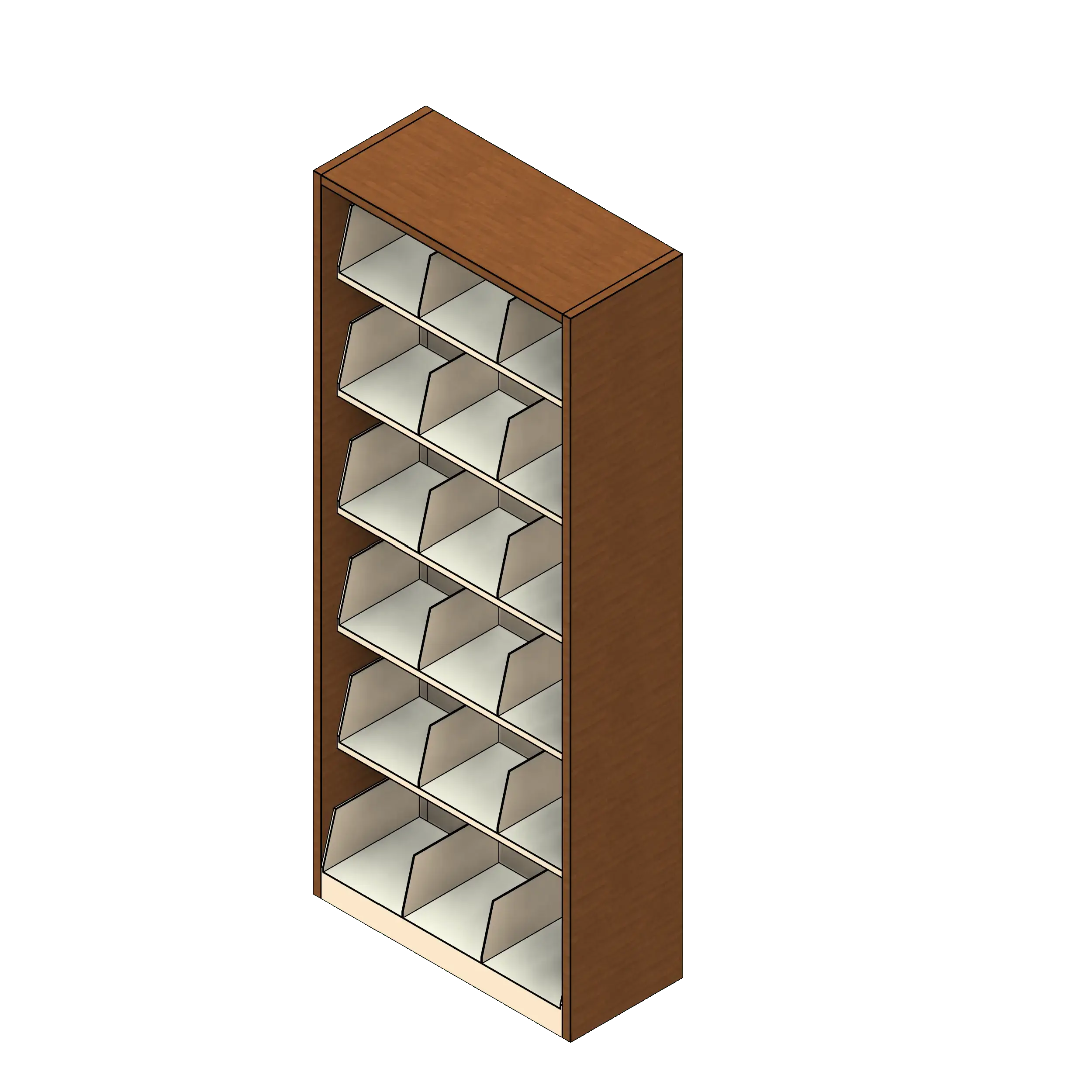Kanban Inventory System for Hospitals, Labs & Central Supply
A Kanban Inventory System helps hospitals, labs, and surgical services cut stockouts and standardize replenishment with simple, two-bin flow and optional RFID tracking. We design ISO-bin racks, carts, return stations with readers, and labeling standards so supplies are always ready and traceable. Download our Revit files to drop proven layouts into your project, or request a consultation to size PAR levels, routes, and integrations for your facility. From point-of-use rooms to enterprise materials management, SSG delivers design, installation, and training that sustain results.
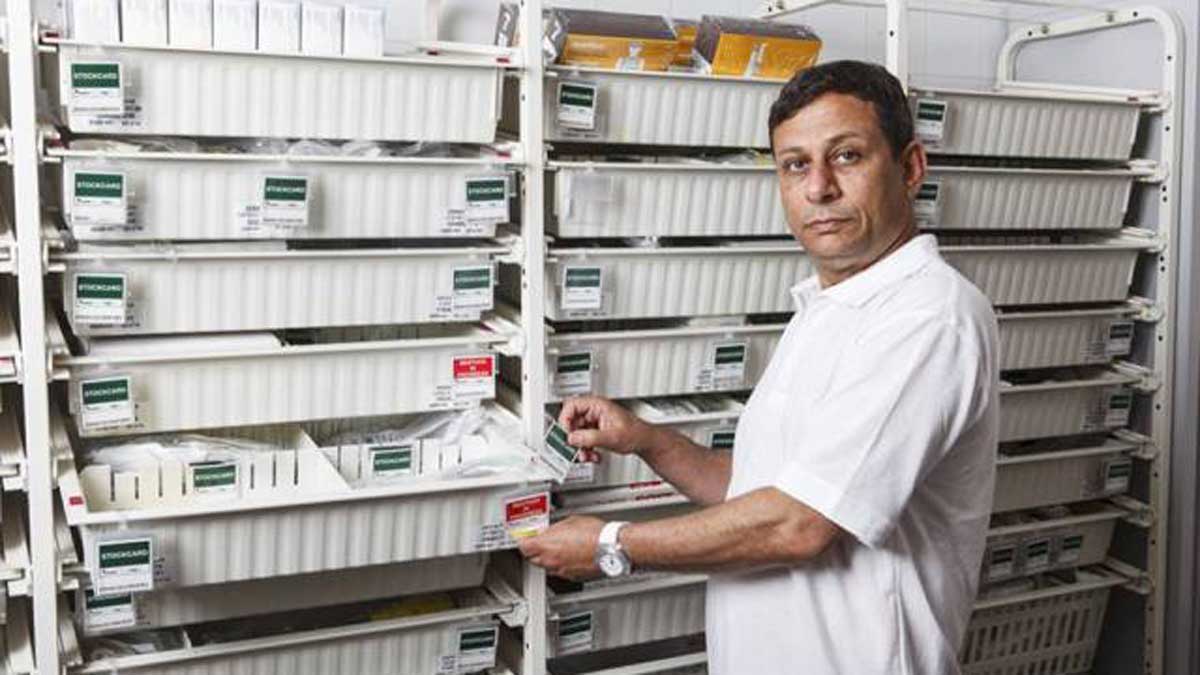
What is a Kanban Inventory System?
A Kanban Inventory System is a visual, pull based approach that signals when to restock supplies so items are replenished only as needed. Originating in lean manufacturing, Kanban reduces overstock, prevents stockouts, and streamlines material flow.
In healthcare, Kanban pairs perfectly with a 2 bin kanban system for high use, low cost consumables like gloves, dressings, IV kits, syringes, and PPE. Each item is split into two equal quantities. Staff draw from the front bin first. When it is empty, that empty condition becomes the restock signal, and staff immediately begin using the backup bin while replenishment is processed.
At a glance
- Visual cues drive timely replenishment
- Reduces overstock and stockouts
- Ideal for fast moving clinical consumables
- Simple to teach and easy to sustain across departments
Key outcomes
- Standardized replenishment quantities
- Less time counting and more time for patient care
- Bin level visibility that supports better decisions
How the 2 Bin Kanban System Works
The 2 bin kanban system divides each item’s PAR quantity into two identical bins that sit front to back. Staff always pull from the front bin first. When it becomes empty, that bin is moved to a designated return location and the back bin slides forward for immediate use. The empty event triggers a replenishment pick for a consistent, preset quantity. The returned bin is refilled and staged behind the active bin. This simple motion supports FIFO rotation automatically.
Workflow highlights
- Split PAR into two equal bins
- Front bin empties and moves to a return rack as the signal
- Standardized picks eliminate guesswork and overordering
- Refilled bin restages behind the active bin to maintain FIFO
- The cycle repeats with minimal training or oversight
What this solves
- Eliminates manual counting rounds
- Stops hoarding and inconsistent refill quantities
- Makes inventory status obvious at the point of use
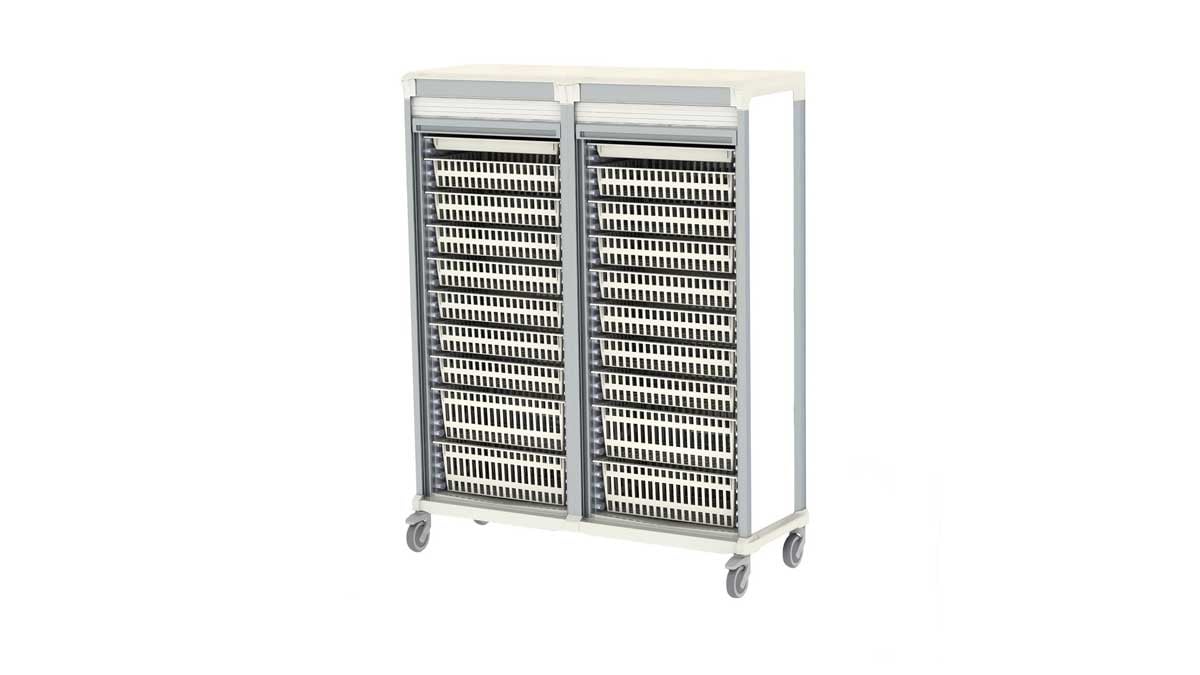
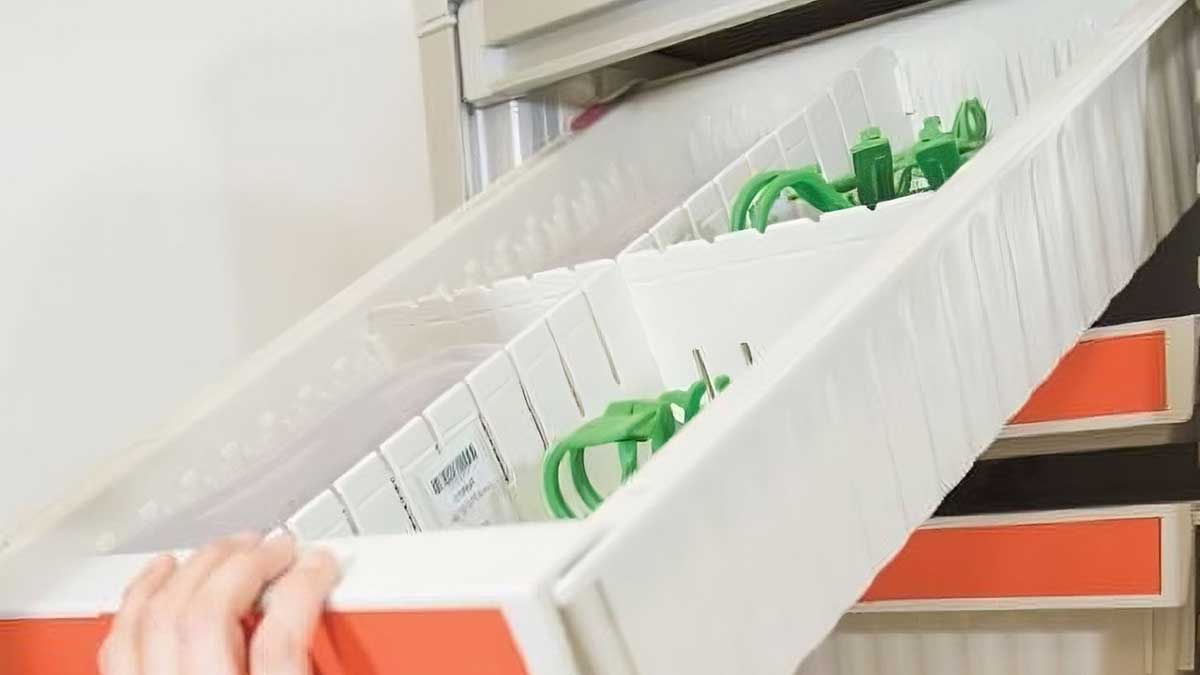
RFID Kanban Inventory System for Healthcare
RFID augments the Kanban Inventory System with automated bin tracking and real time data. Each bin or basket is identified with RFID. When the front bin is depleted, staff place it on a return rack equipped with fixed readers. The system instantly records the empty event, creates a replenishment in the inventory platform, and routes a standardized pick to materials management. Clinical teams keep working from the backup bin without interruption.
When replenishment arrives, the remaining backup stock moves forward and the refilled bin stages behind it. That movement enforces FIFO so the oldest items are used first.
Why RFID with Kanban works
- No manual counts for fast moving consumables
- Real time usage data by item and location
- Automated replenishment with standardized quantities
- FIFO rotation built into every restock
- Fewer stockouts and fewer emergency requisitions
Common integrations
- Hospital inventory and materials management platforms
- PAR level frameworks and purchasing systems
- Department dashboards for demand visibility
Integration and data flow
- Empty bin events create picks in inventory software
- PAR frameworks maintain min and max and trigger logic
- Optional ERP link for automated reorders and cost capture
- Dashboards show usage by item, room, and cost center
Barcode fallback is available as a first step, then upgrade to RFID later
2 Bin Kanban System vs Traditional PAR
Traditional PAR relies on periodic visual counts and estimates to restore stock to a target level. It is labor intensive and often inconsistent. The 2 bin kanban system replaces rounds with a simple empty bin event that triggers a precise, repeatable refill.
Traditional PAR challenges
- Manual counts and visual estimation
- Variable refill quantities by person or shift
- Inconsistent FIFO rotation
- Limited visibility between counts
2 bin kanban advantages
- Empty bin events replace counts
- Standardized picks improve speed and accuracy
- FIFO is built into the workflow
- Clear status at the point of use
- Reliable, repeatable process across rooms and floors
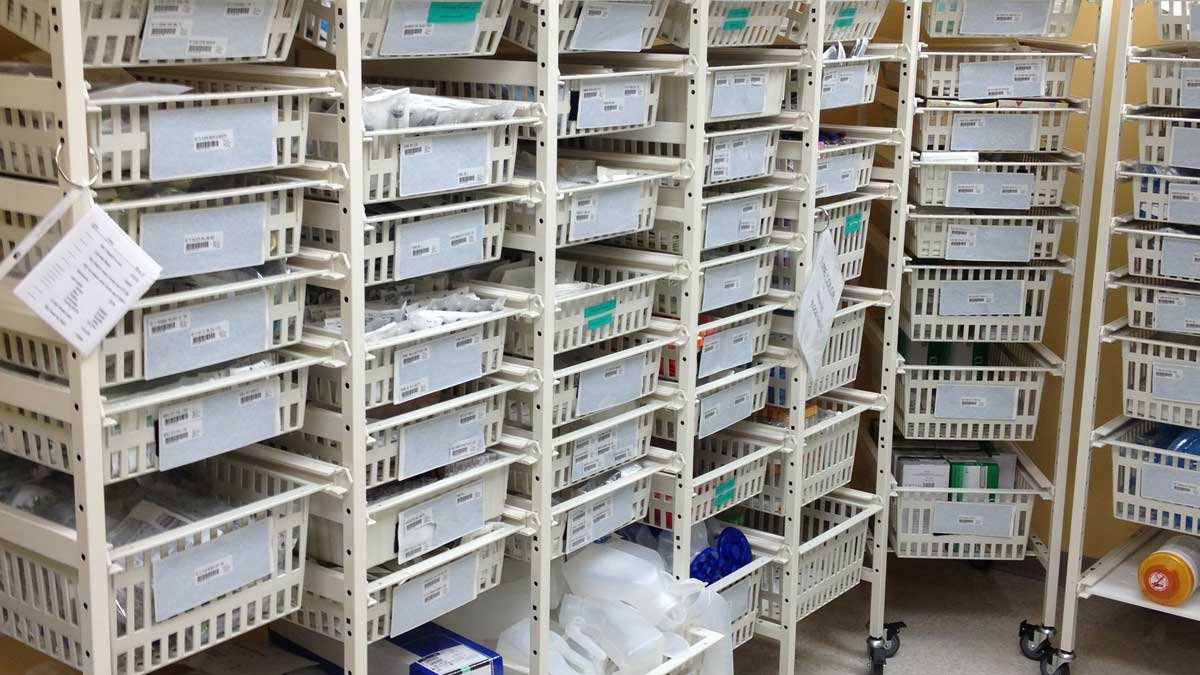
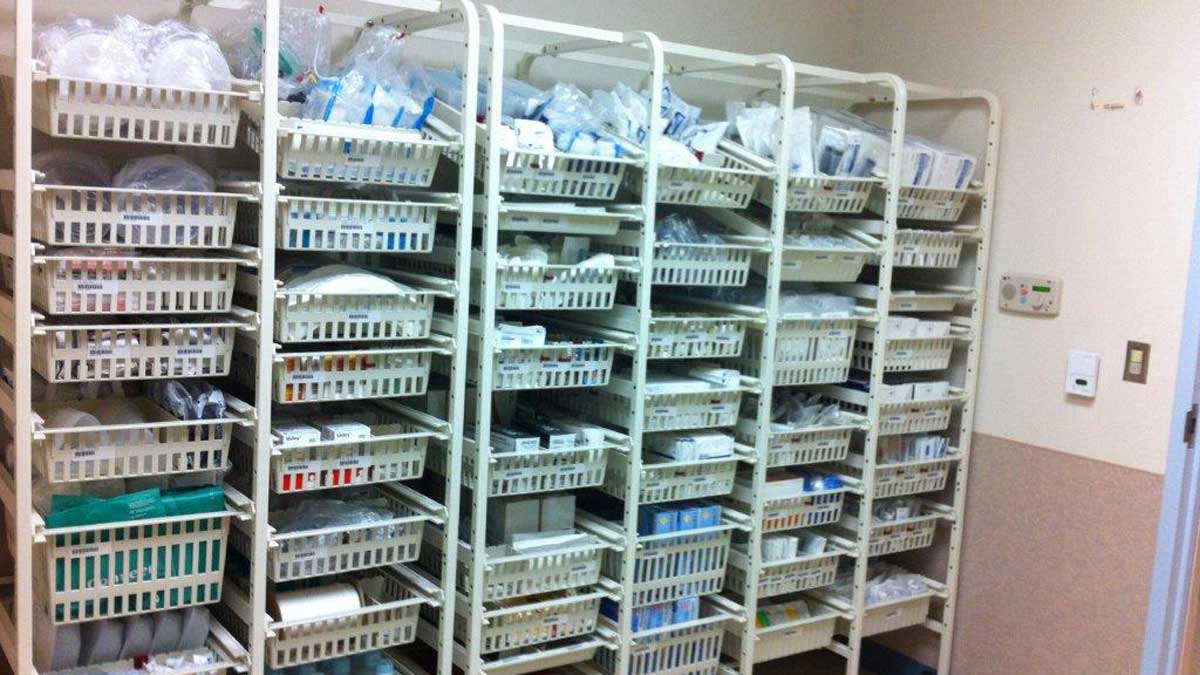
Benefits in Hospitals, Labs, and Clinics
Stockouts reduced
Empty events trigger replenishment quickly. Fast moving items are on hand when needed, which helps reduce delays and hoarding.
Efficiency gained
Supply techs replenish flagged bins instead of counting entire rooms. Standardized picks and routes save labor and reduce errors.
Better stock rotation
The forward move and restage motion enforces FIFO so the oldest stock is used first. That reduces expirations and clinical waste.
Demand visibility
Bin level usage records inform PAR tuning by item and location. Managers right size stock to match true demand.
Lower costs
Less expired product, fewer rush orders, and reduced counting labor lower total cost of ownership.
Space savings
Right sized PAR and standardized bins shrink storage footprints and free space for clinical tasks.
Infection control and cleaning
- Smooth, nonporous surfaces and removable baskets make wipe downs fast
- Optional solid liners protect packaging from wire contact
- FIFO motion reduces expired stock sitting at the back
- Labels are sized to avoid residue and withstand routine cleaning
Frequently Asked Questions
Yes, partitions inside kanban inventory systems are fully adjustable. This allows users to easily configure each bin or tray for two bin lean storage, six sigma workflow support, and customized inventory management.
Yes, trays in kanban inventory systems are universal, which means they can be inserted by the long dimension or the short dimension. This allows kanban inventory systems to support a wide range of item sizes and picking preferences.
RFID tags and fixed readers automatically capture empty events, standardize picks, and provide real time usage visibility without manual counts.
Yes, kanban inventory systems typically provide about 50 percent more capacity in the same square footage compared to traditional wire shelving. This increased density allows kanban inventory systems to store more SKUs while improving picking efficiency.
Yes. Empty bin events can feed hospital inventory platforms, purchasing, and PAR frameworks for automated replenishment and reporting.
Yes, kanban inventory systems can incorporate RFID tags on the front bins. When the front bin becomes empty, the RFID tag signals a reorder point, eliminating manual counting and reducing stockouts in kanban inventory programs.
Yes, doors can be added to kanban inventory systems. These doors may be roll down doors, hinged doors, or glass front doors, allowing secure storage and controlled access while maintaining visibility of stored items.
Yes, kanban inventory systems can be built as mobile carts or stationary units. Mobile kanban inventory systems are ideal for replenishment routes, while stationary units work well for fixed pick locations in stockrooms or production areas.
Honest Results
Southwest Solutions Near You
With 7 offices in Texas, Oklahoma, Kansas and Colorado, plus teams covering every major metro area nationwide, Southwest Solutions Group delivers expert Kanban inventory system sales, design, installation, and maintenace support wherever you need it.
Kanban Inventory System Service Areas
Texas
- Austin
- Dallas
- El Paso
- Fort Worth
- Houston
- San Antonio
Oklahoma
- Broken Arrow
- Edmond
- Lawton
- Norman
- Oklahoma City
- Tulsa
Kansas
- Kansas City
- Lawrence
- Olathe
- Overland Park
- Topeka
- Wichita
Colorado
- Aurora
- Colorado Springs
- Denver
- Fort Collins
- Lakewood
- Boulder
Alaska
- Anchorage
- Fairbanks
- Juneau
- Wasilla
- Sitka
- Ketchikan
Arkansas
- Little Rock
- Fayetteville
- Fort Smith
- Springdale
- Jonesboro
- Rogers
Idaho
- Boise
- Meridian
- Nampa
- Caldwell
- Idaho Falls
- Pocatello
Louisiana
- New Orleans
- Baton Rouge
- Shreveport
- Metairie
- Lafayette
- Lake Charles
Missouri
- Kansas City
- St. Louis
- Springfield
- Columbia
- Independence
- Lee's Summit
Montana
- Billings
- Missoula
- Great Falls
- Bozeman
- Butte
- Helena
New Mexico
- Albuquerque
- Las Cruces
- Rio Rancho
- Santa Fe
- Roswell
- Farmington
Washington
- Seattle
- Spokane
- Tacoma
- Vancouver
- Bellevue
- Kent
West Virginia
- Charleston
- Huntington
- Morgantown
- Parkersburg
- Wheeling
- Martinsburg
Wyoming
- Cheyenne
- Casper
- Gillette
- Laramie
- Rock Springs
- Sheridan
Alabama
- Huntsville
- Birmingham
- Montgomery
- Mobile
- Tuscaloosa
- Hoover
Arizona
- Phoenix
- Tucson
- Mesa
- Chandler
- Gilbert
- Glendale
California
- Los Angeles
- San Diego
- San Jose
- San Francisco
- Fresno
- Sacramento
Connecticut
- Bridgeport
- New Haven
- Stamford
- Hartford
- Waterbury
- Norwalk
Delaware
- Wilmington
- Dover
- Newark
- Middletown
- Smyrna
- Milford
Florida
- Jacksonville
- Miami
- Tampa
- Orlando
- St. Petersburg
- Hialeah
Georgia
- Atlanta
- Augusta
- Columbus
- Macon
- Savannah
- Athens
Hawaii
- Honolulu
- East Honolulu
- Hilo
- Pearl City
- Kailua
- Waipahu
Illinois
- Chicago
- Aurora
- Naperville
- Joliet
- Rockford
- Springfield
Indiana
- Indianapolis
- Fort Wayne
- Evansville
- South Bend
- Fishers
- Carmel
Iowa
- Des Moines
- Cedar Rapids
- Davenport
- Sioux City
- Iowa City
- Waterloo
Kentucky
- Louisville
- Lexington
- Bowling Green
- Owensboro
- Covington
- Richmond
Maine
- Portland
- Lewiston
- Bangor
- South Portland
- Auburn
- Biddeford
Maryland
- Baltimore
- Frederick
- Rockville
- Gaithersburg
- Bowie
- Hagerstown
Massachusetts
- Boston
- Worcester
- Springfield
- Cambridge
- Lowell
- Brockton
Michigan
- Detroit
- Grand Rapids
- Warren
- Sterling Heights
- Ann Arbor
- Lansing
Minnesota
- Minneapolis
- St. Paul
- Rochester
- Bloomington
- Duluth
- Brooklyn Park
Mississippi
- Jackson
- Gulfport
- Southaven
- Hattiesburg
- Biloxi
- Olive Branch
Nebraska
- Omaha
- Lincoln
- Bellevue
- Grand Island
- Kearney
- Fremont
Nevada
- Las Vegas
- Henderson
- Reno
- North Las Vegas
- Sparks
- Carson City
New Hampshire
- Manchester
- Nashua
- Concord
- Dover
- Rochester
- Keene
New Jersey
- Newark
- Jersey City
- Paterson
- Elizabeth
- Edison
- Woodbridge
New York
- New York City
- Buffalo
- Rochester
- Yonkers
- Syracuse
- Albany
North Carolina
- Charlotte
- Raleigh
- Greensboro
- Durham
- Winston-Salem
- Fayetteville
North Dakota
- Fargo
- Bismarck
- Grand Forks
- Minot
- West Fargo
- Williston
Ohio
- Columbus
- Cleveland
- Cincinnati
- Toledo
- Akron
- Dayton
Oregon
- Portland
- Salem
- Eugene
- Gresham
- Hillsboro
- Beaverton
Pennsylvania
- Philadelphia
- Pittsburgh
- Allentown
- Reading
- Erie
- Scranton
Rhode Island
- Providence
- Cranston
- Warwick
- Pawtucket
- East Providence
- Woonsocket
South Carolina
- Charleston
- Columbia
- North Charleston
- Mount Pleasant
- Rock Hill
- Greenville
South Dakota
- Sioux Falls
- Rapid City
- Aberdeen
- Brookings
- Watertown
- Mitchell
Tennessee
- Nashville
- Memphis
- Knoxville
- Chattanooga
- Murfreesboro
- Clarksville
Utah
- Salt Lake City
- West Valley City
- West Jordan
- Provo
- St. George
- Orem
Vermont
- Burlington
- South Burlington
- Rutland
- Essex Junction
- Bennington
- Brattleboro
Virginia
- Virginia Beach
- Norfolk
- Chesapeake
- Richmond
- Newport News
- Alexandria
Wisconsin
- Milwaukee
- Madison
- Green Bay
- Kenosha
- Racine
- Appleton
Explore Our Shelving
Stay Stocked, Streamlined, and Ahead of Demand
A Kanban Inventory System aligns teams around a simple, visual process that eliminates manual counts, prevents stockouts, and reduces waste. Whether you start with a barcode scanned two bin setup or go straight to RFID automation, we will help you right size PAR, standardize bins, and implement FIFO rotation across your supply rooms.
Call (800) 803 1083 or Request a Free Consultation to plan your 2 bin kanban system. We design, install, and support solutions for hospitals, surgery centers, labs, and clinics.
REQUEST A FREE CONSULTATION
